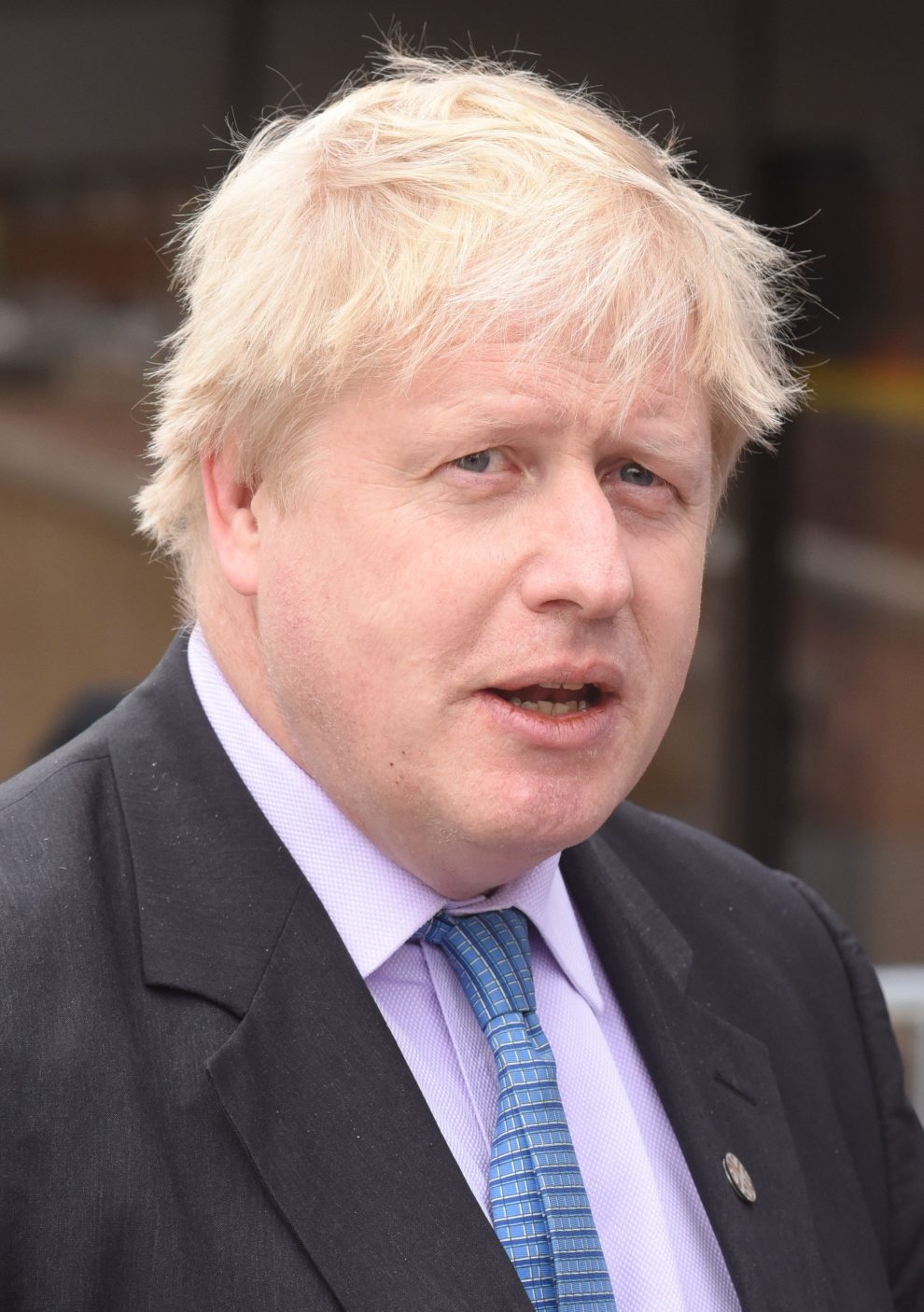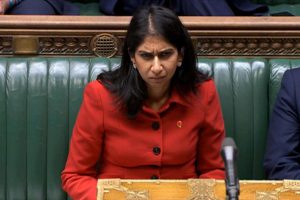BORIS Johnson isn’t Prime Minister yet, but he’s already behaving like a dreadful Prime Minister.
This shouldn’t surprise anyone, because he was a dreadful Foreign Secretary and appears ill-suited to the responsibilities of high office. You might, however, expect that two years in charge of the UK’s diplomatic service would have left him with some residual understanding of how diplomacy works.
One of the core functions of a diplomatic mission, as set out in Article 3 of the 1961 Vienna Convention, is “ascertaining by all lawful means conditions and developments in the receiving State, and reporting thereon to the Government of the sending State.” Article 27 (2) provides that the official correspondence of the mission shall be inviolable.
In just such an inviolable confidential dispatch written in 2017, our Ambassador in Washington DC, Sir Kim Darroch, described conditions and developments in the receiving state in some pretty robust terms: “We don’t really believe this administration is going to become substantially more normal; less dysfunctional; less unpredictable; less faction-riven; less diplomatically clumsy and inept.” He averred to “vicious infighting and chaos” in the White House, and in a later memo criticised the President’s “incoherent, chaotic” policy on Iran.
There is nothing at all improper about an Ambassador expressing himself in these terms. It is precisely what he is paid to do. What diplomats say in public is not what they say in private. ‘Diplomatic’ speech is called for when you are talking to a foreign leader on behalf of HMG, not when you are talking to HMG about a foreign leader. These comments were only for the eyes of policymakers in London, and Sir Kim was entitled to expect them to remain secret.
American diplomats express themselves in exactly the same way in their dispatches home to Washington. Diplomatic telegrams published in 2010 by Wikileaks described President Hamid Karzai of Afghanistan as corrupt, erratic, weak, indecisive and paranoid; Aussie PM Kevin Rudd as “an abrasive, impulsive control freak”; President Sarkozy of France as thin-skinned and “an emperor with no clothes”, and the president of Eritrea “an unhinged dictator”.
All of these US diplomats’ undiplomatic assessments of their hosts were faultless in their accuracy, and a good deal more potentially offensive than what Sir Kim had to say about the Tango-toned buffoon in the White House. Regardless of this, the toddler President threw a tantrum. Trump screamed he wouldn’t work with the bad guy from Britain, flinging some choice insults in Theresa May’s direction for good measure.
It wasn’t long before Brexity types started howling their outrage at Kim Darroch’s assessment of their orange political superhero, describing Darroch (state-educated; brought up in a council house) as a snobby elitist Remoaner and suggesting who should replace him in DC.
The loathsome Richard Tice MEP (Uppingham) thundered that Sir Kim’s comments had “damaged our country’s relationship with our biggest trading and security partner at a time when we seek a new FTA… beyond humiliating. We need someone who’ll represent UK interests and who the US will actually deal with!”
Richard later gave us a clue as to what sort of a person this should be: “We need a pro-Brexit businessman to replace him & ensure quick trade deal.” Did Richard mean Richard? Yes, Richard confirmed, “I could do a much better job than Kim Darroch”.
Tice proceeded to describe Sir Kim –a former national security advisor to the PM, who has an exemplary, 40-year career representing the UK’s interests at home and overseas– as having no morals or integrity. Bravo to everyone in the East of England electoral region who recently returned this shower to the European Parliament; a job with which he is clearly already bored.
Most people in the UK and around Europe will find Sir Kim’s view of Trump either uncontroversial or obviously right. He must be allowed to say it in confidence without being forced from his job. This should be particularly apparent to Boris Johnson, who as Foreign Secretary wasn’t above uttering some very undiplomatic things himself: blurting out that Nazanin Zaghari-Ratcliffe was in Iran to train journalists (they call that ‘spying’ there); saying Libyan beaches would be a top tourist attraction, as soon as they “clear the dead bodies away”; singing ‘The Road to Mandalay’ to an audience of flabberghasted Burmese officials.
Boris Johnson has even said, very publicly, exactly the same sort of stuff about Donald Trump that got Kim Darroch into such trouble. As Mayor of London, Boris –responding to the then Presidential candidate’s suggestion that there were areas of London where the police didn’t dare go– ventured that Trump was “clearly out of his mind”, “stupefyingly ignorant”, “unfit to be President” and “playing the game of terrorists”. The Mayor offered to invite Trump to London to let him see for himself, “except I wouldn’t want to expose Londoners to any unnecessary risk of meeting Donald Trump.”
Despite all this, when Boris was asked four times in Tuesday’s Conservative leadership hustings to confirm that Darroch should keep his job, he refused, saying it would be ‘presumptuous’ to give an opinion while the race for No. 10 was still underway. This absence of support from the man almost certain to be the next Prime Minister could have only one consequence. Sir Kim, putting the country’s interests before his own, fell on his sword.
The episode reflects appallingly on Boris, but it has done wider harm to Britain’s diplomatic interests. That the leak happened at all damages Britain’s reputation as a well-governed country that can keep state secrets. If this sort of thing leaks, what else might?
The Darroch affair has also damaged the diplomatic service’s ability to speak frankly to those in power. Sir Kim’s fate could have a chilling effect on what diplomats will in future be prepared to say to policymakers. Ministers will be less well informed, and, in the next PM’s case, none the wiser either.


















Add Comment